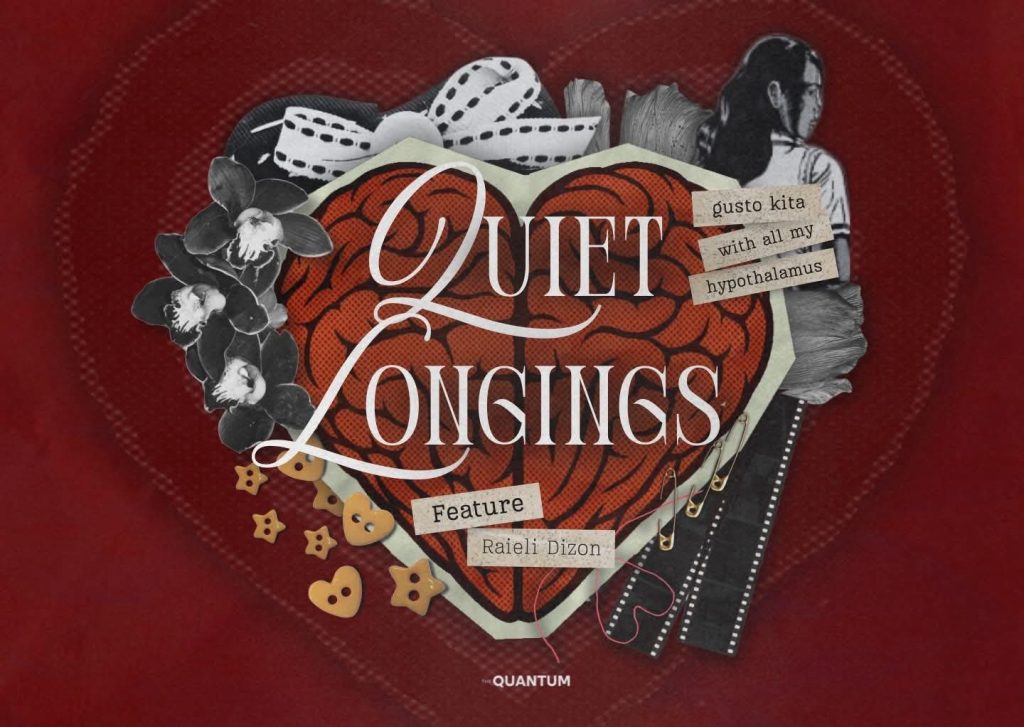by: Raieli Rico Paul Dizon
Copyedited by: Joebbie Gaugano
Publication by: Claire Mendoza

Walking along the streets of Manila, I was immersed in a bittersweet sensation of sadness and nostalgia. The entire city was buzzing with the sound of jeepneys and pedestrians. It was both busy and loud, yet untold stories still remained. I remember staring blankly at streets and wondering about how many lives there are, each of them with a different tale of loss, love, and hope. Watching Dwayne Baltazar’s “Gusto Kita with All My Hypothalamus” again brought that exact feeling back to me—the quiet messages hidden in the ordinary.
A Loud Love
Filipino films so often broach the topic of love in loud, dramatic, almost operatic fashion—screaming love confessions of devotion in the rain, or destiny already decided. Baltazar does the exact opposite, it tells us of the lives of four men: a widower, a security guard, a thief who lifts purses, and a student—whose lives intermingle Avenida, but are tied to one another in a desperate yearning for a woman named Aileen.
It comes close to being a tale of obsession, but the film avoids this by grounding the feelings of each character in something fundamental to being human. You don’t get a dramatic confrontation, a neat resolution. Instead, Baltazar permits the narrative to gradually but carefully unravel so we can experience in still and obscure ways how loneliness, desire, and love develop.
A Deep Yearning
The movie whispers the reality of what it’s like to hunger for touch in a city that keeps people invisible. The characters’ longing for Aileen feels less about her as an individual and more about what she represents: a vessel that can satiate their longing, a symbol of tenderness in their lonely lives. By the end, it’s clear that the woman they desire has become a mirror—reflecting back their own vulnerabilities.
Some may say that the film is perplexing at first or that it doesn’t provide enough answers, but I would argue that this is precisely its charm. Baltazar doesn’t spoon-feed us resolution because
reality rarely does. The setting, Avenida itself becomes a character, a witness to the fleeting glances, unspoken words, and desires too fragile, too complicated to articulate.
An Atypical Ending
The movie stands out because it recasts the idea of Pinoy love stories. Not fate, not grand gestures, it reminds us how it works in life—how it’s the Hypothalamus’ stimulus of our wanting and being-in-love feeling, the ability to feel a want for connection. It was seeing it and feeling as if being enlightened to a secret: that it is within possibility for the smallest of interactions in the most ordinary of environments to touch something within us deep, stirring something profound, whether it can do us any good or not.
Gusto Kita with All My Hypothalamus is not just a film of yearning and love; it is a slice of life about what it means to be human in a city that both connects and isolates. It’s a reminder that sometimes, the heart’s deepest yearnings are not for dramatic love affairs. That even through noise, everyone has their quiet longings, wanting to be seen, even for a moment only.



